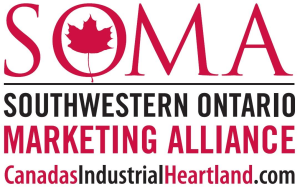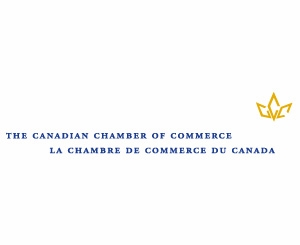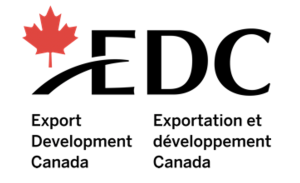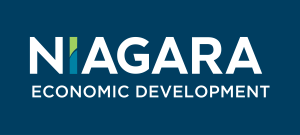Joint Meeting of the Japan-Canada Chambers Council
Date: Monday, September 19, 2022
Venue: Art Gallery Ontario
Number of participants: Japan side – 30, Canada side – 23, total 53
Distinguished Guests: Ambassador Yamanouchi, Mr. Takuya Sasayama, Consul General in Toronto, Mr. Jun
Saito, Consul General in Montreal, and Ambassador McKay.
[Meeting Summary]
This year’s JCCC Joint Meeting, emceed by Noriko Ishida, Executive Director of the Canadian Chamber of Commerce in Japan, was the first time in 5 years in in-person format since the last meeting in Sendai in 2017. The theme of the meeting was ‘Respected Friends in a Challenging World’ with the three discussion topics: Supply Chain, Energy, and Agri-food.
Opening and Welcoming Remarks
Mr. Steve Dechka, Canada Chair of the Japan-Canada Chambers Council, has said as an opening remark that this was the 4th JCCC Joint Meeting and also the 2nd time for the meeting to be held in Canada. Considering that the last meeting was held in Sendai after the Tohoku Earthquake and this time was during the pandemic, the annual joint meeting had an implication of the beginning of the new era. He also said by discussing the three topics, he expected to build a stronger relationship between Canada and Japan.
Mr. Tatsuo Yasunaga, Japan Chair of the Japan-Canada Chambers Council mentioned that the world economy has dramatically changed in the past 10 months due to Russia’s invasion of Ukraine. During the G7 Summit June 2022, both Canada and Japan have agreed on working closely in the fields of energy and food, which are 2 of 3 topics of today’s discussion. He expected to fruitful panel discussions to lead how Canada and Japan, where the same values are shared, would be able to cooperate and collaborate.
Ambassador Ian McKay mentioned that both Canada and Japan are facing the same challenges on the rule-based systems, security, global health, energy, free trade, climate change to name a few. While Canada-Japan relations have recently been strengthened by working collaboratively on energy (hydrogen, ammonia), EV, green technology, it has now become an even more important matter for the countries to come together than ever before.
Ambassador Kanji Yamanouchi, who was appointed 4 months ago, has said that this was the first big official meeting with the two countries and also emphasized the importance of these face-to-face meetings. He pointed out that Canada and Japan are now entering into a new stage by giving three reasons: a significant progress of AI, an increasing demand for grain and energy producing countries due to the Ukraine crisis, and the Canadian government's contribution to the Free and Open Indo-Pacific, led by the former Prime Minister Abe.
Topic #1: Supply Chain – Ensuring Trade Flows Efficiently
The first session was open by a speech from Mr. Ichiro Sone, Executive Director of JETRO Toronto. In his speech, he said that the main factors affecting supply chains are the disrupted logistics on production planning in the manufacturing industry, the expansion of international businesses due to the Russian invasion of Ukraine, and the economic slowdown due to the contractionary monetary policy in response to inflation. Regarding the supply chain related to logistics from Japan to Canada, delays in shipping services and soaring freight costs have had a significant impact on the management of Japanese companies in Canada. In addition, according to a survey conducted by JETRO to Japanese companies in the U.S. and Canada, 70% of companies consider human rights issues as today’s management challenge and place importance on human rights in a global supply chain. On the other hand, based on JETRO’s another survey targeting the headquarters of Japanese companies, the U.S. ranked first as a country for future business expansions, and Canada placed 14th in the ranking.
Mr. Sone also added that not only Canada possesses advanced technology, manufacturing and natural resources, but it also has a huge market with lower costs compared to the U.S., and has a geographical advantage located next to the U.S.. Therefore, it is expected that the number of companies seeking procurement and production in Canada will increase.
Secondly, Mr. Peter Xotta, Vice President of Operations and Supply Chain, Vancouver Port Authority and Mr. Ron DiCarlantonio, CEO of iNGAGO, gave their speeches as panelists from Canada side. Mr. Xotta mentioned that regarding the port operations, the number of container unloads hit a record high in 2021-2022 due to the pandemic. They have been working towards improving the situation, however, the volume of goods changes every day and there is a shortage of containers. They fully understand the vulnerability of port operations and intend to improve them by investing in facilities, utilizing digital technology, and improving transparency and capacity. Also, he stated that it is necessary to invest in the entire infrastructure including railways and roads, and a task force has been set up under the Ministry of Transport to work on improvements.
Mr. DiCarlantonio said that his company INAGO operates its digital assistance business in Toronto and Japan with Japanese automotive companies as their main customers. He also added that ‘connected cars’ and ‘electricity’ will be the key aspects in the near future, and that there is a need for further innovation in the automotive industry. Based on his own experience working at Sony in Japan, he pointed out that Japan is strong in hardware but weak in software whereas Canada is strong in software but weak in hardware. Therefore, collaboration between the two countries should lead to a better solution in the auto industry.
Also, Mr. Sone stated that there are many Canadian companies seeking to collaborate with Japanese companies. As of now, only around 1,000 Japanese firms invest in Canadian businesses, which ranks the 6th place among the countries that invest in Canada the most (U.S. ranks the first having 9,000 firms). In addition, considering that Japan is now focusing heavily on energy sources (e.g., hydrogen and ammonia), they may be able to expect further investments in startup Canadian businesses by Japanese companies.

Topic #2: The Friendsourcing of Energy
The panelists for the second topic were Ms. Shaheen Amirali, Executive Vice President of AltaGas, Mr. Ian Burney, Senior Advisor, Paradigm Capital, and Mr. Kaori Namiki, President of Mitsubishi Canada. Ms. Amirali began her speech stating that AltaGas was established in 1994 and mainly exports LPG gas to Asia while emphasizing diversification, diversity, and reliability of procurement sources. She also added that it has a strong and positive relationship with Japan with emphasis on human relationships, and seeks to respond to changing demands of Japanese customers.
Secondly, Mr. Kaori Namiki mentioned that Mitsubishi Canada is now promoting energy transformation with the goal of carbon neutrality and net zero by 2050, and will invest not only in LNG but also in critical minerals such as hydrogen and nickel. With the impact of the Russian invasion of Ukraine, there is a definite need for change in the LNG global supply chain and that Canada will certainly become one of the biggest suppliers of LNG for Japan. In addition, Canada has a great potential for further development of hydrogen, ammonia, etc., and considers exporting them to Japan, however, it is facing challenges around infrastructure development including transportation and port facilities at the same time. Therefore, the support from the federal and provincial governments will be necessary for further improvements. In promoting businesses in Canada, he added that it is necessary to implement a smooth process under the initiative of the federal government, especially because of the different policies and systems in the federal and each provincial government of Canada.
Mr. Ian Burney, Senior Advisor, Paradigm Capital, stated, based on his 34-year experience at the federal government, that Canada is rich in natural resources and has stable political systems and manufacturing processes in addition to the geographical advantage of having to sail only in the Pacific Ocean when trading with Japan. AltaGas exported LPG to Japan 3 years ago for the first time and has already reached $1 billion in the last 3 years, which is 3% of Japan’s share. During his speech, he also introduced Canada’s superiority in LNG Canada and blue ammonia, and the potential of solar energy and nuclear power.

Topic #3: High-Quality Food in a Time of Crisis
At the beginning of the discussion, Mr. Tatsuji Hidaka, President of Mitsui Canada, delivered his presentation that the food self-sufficiency rate is 38% in Japan and 233% in Canada. Also considering that Canada is a huge producer of wheat and canola oil and is also becoming an alternative export destination from Russia and Ukraine, Canada could be Japan's significant partner to help bridge this percentage gap. Additionally, Canada produces ⅓ of the world’s potash fertilizer necessary for food production and is also the world’s largest producer of lentils and dried peas. While the demand for these plant-based proteins from Canada is increasing worldwide, the exportation of agricultural products from Japan is also expected to rise. At the same time, however, there have been major issues in port logistics including freight cars and containers shipping in Canada. Whereas goods can usually be shipped within 30 days (45 days in winter) to Japan, the number of days has increased since 2016. In improving the situation, the government and private sectors need to work together to find an effective solution, Mr. Hidaka explained.
Dr. Evan Fraser, Director, Arrell Food Institute, University of Guelph, has emphasized in his speech that Canada should become a stable and reliable supplier of food, and it can produce and supply more food by utilizing blockchain digital technology. He also pointed out that to strengthen farmers, Canada should utilize more of Japan’s advanced technologies.
Ms. Kim O’Neill, Vice President, Beef, Canada Meat Council mentioned that the meat market of Japan has been growing in the past years. While China is an important market for pork, Canada should place high priority on the Japanese market as it is the second largest market after the U.S. and is considered a safe, stable and reliable market based on WTO standards.
Lastly, Mr. Todd Dezin, Nutrien, Vice President, Commercial Fertilizer, gave his speech and introduced Nutrien for potash fertilizer. The firm now has 24,000 employees and has been building a retail sales network around the world. He also added that Japan is an important market segment that currently imports 24 million tons of the fertilizer, but the company plans to increase its production from 50 to 80 million tons for the purpose of lowering prices and making up for the shortfall.

After the conclusion of the panel discussions, Chairs of both sides signed on the joint statement, Japan-
Canada Chambers Council Declaration, witnessed and signed by Ambassador Yamonouchi and Ambassador
McKay.

| Attachment | Size |
|---|---|
| 83.05 KB |




























